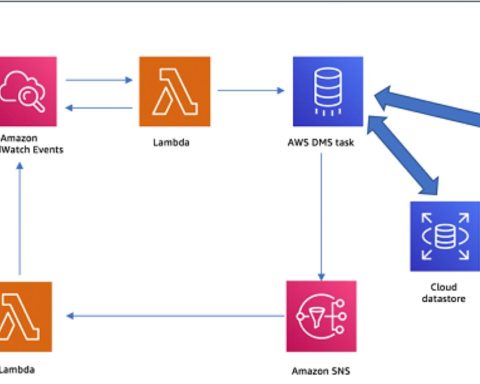Platform engineering is crucial for business agility, innovation, and customer-centricity, regardless of a company’s size or stage of development. Organizations must invest in the right strategies, processes, and culture as early as possible, says Rob Zuber of CircleCI.
As a serial founder and CTO, I’ve seen much regarding software development. From big upswings in the market through economic downturns, I’ve been through the trenches of the tech world. A few things have always remained clear to me throughout the ups and downs: putting the customer first, prioritizing agility, and staying flexible are the keys to business success.
But how do you put these priorities into practice? More and more often, the answer is becoming: platform engineering. Platform engineering goes beyond just writing code. It’s about creating a robust, scalable, and flexible foundation that empowers your entire organization to operate efficiently, innovate, and grow. It’s about building an internal safety net that serves as the backbone of your digital operations and unlocks the full potential of your business.
Let’s dive into the top three reasons why your organization needs platform engineering and why it’s never too early to implement this thinking.
1. Customer-centricity Is Non-negotiable
Platform engineering enables developers to deliver maximum value to customers with minimum expenditure of resources and effort.
When your development team is thinking about systems and processes, it takes time away from your ability to focus on your customer’s needs and solve their problems. Don’t try to solve the things that aren’t differentiating you because chances are, someone else has already solved them. Stand on the shoulders of those who’ve created a paved road for you by using existing tools and processes and focusing on your customer’s needs instead.
That’s where platform engineering comes in. The platform team or platform engineer evaluates the needs of development teams across the organization to identify the tools, services, and workflows required to deliver quality software quickly. The team then works to make these tools available through reusable components and processes.
Take, for example, NetflixOpens a new window . The Platform Experiences and Design (PXD) team at Netflix decided to build a federated platform console that could serve as a one-stop shop for all the tools engineers need to develop and deploy software at scale. The console enables a minimally valuable feature set that developers can use to view and assess the state of their software.
This is why it’s also vital for platform teams to prioritize their version of customer centricity — their customer is the engineering organization. Platform teams should meet with their customers to understand their individual and shared pain points, how they solve problems, and what features they need.
When platform teams deeply know their internal customer, developers can minimize time spent writing repetitive code and instead focus on the needs of external customers. And business leaders can rest assured that engineering teams follow approved processes that are secure, compliant, and cost-effective processes.
2. Agility Is the Name of the Game
Organizations must be nimble, adaptive, and responsive in today’s fast-paced business environment. Consider big market changes like the pandemic or the rapid expansion of generative AI. In a recent Gartner pollOpens a new window of more than 2,500 executive leaders, 45% reported that the publicity of ChatGPT has prompted them to increase AI investments. Seventy percent of executives said their organization is in investigation and exploration mode with generative AI, while 19% are in pilot or production mode. Businesses need to handle this kind of change with little disruption.
Agility is key. Ask yourself, ‘What does my business look like in this new world?’ The winners can continually adapt and experiment to meet these challenges.
But agility doesn’t happen by accident. It requires a deep understanding of what provides value and what doesn’t and the ability to translate those insights into actionable features and functionalities. It requires a user-centric approach to design and development, where the end user is at the forefront of every decision. It requires a robust feedback loop, where input is actively sought and incorporated into processes that will abstract away the things that no longer provide value.
This is made possible through platform engineering. The platform team puts engineers in a better position to incorporate, quickly respond to customer feedback, and build improved loyalty and trust.
3. It’s Never Too Early to Implement a Platform Approach
It’s never too early to start baking platform-thinking into your culture. It doesn’t have to be an entire team, but platform thinking, which is largely about avoiding duplication, is important. You’re wasting energy if you have repeated processes.
Promoting the reusability of tools and configurations is a core objective of any platform engineering team. Reusability makes the application delivery process more efficient, reduces the resources spent on tools, and improves code consistency, among other optimizations.
Research showsOpens a new window that companies with a platform team, even if the “team” comprises one or two individuals, are faster and more responsive than those without one. This is because, oftentimes, platform engineers are skilled in centralizing and consolidating tooling and process decisions for better efficiency and control. They are the internal developer — taking care of the things that make it easier for teams to deliver.
By tracking and benchmarking against meaningful metrics and incorporating that data into their systems and decision-making, platform teams can improve the developer experience and productivity and have a noticeable impact on achieving business goals.
The result of this efficiency? Innovation thrives. With less cognitive load, your developers can focus on rolling out new features and updates faster, respond to customer feedback more effectively, and continuously improve their products to stay ahead of the competition.






